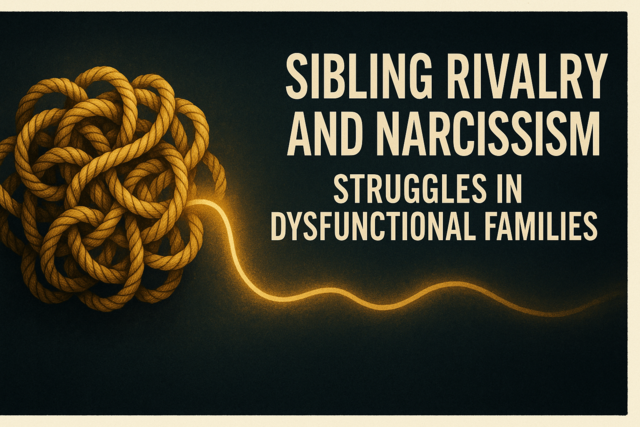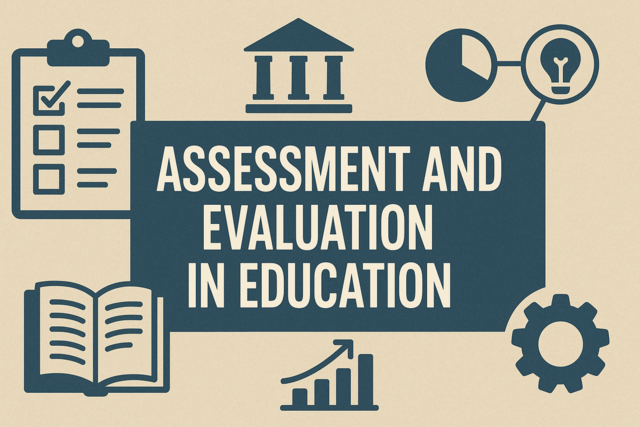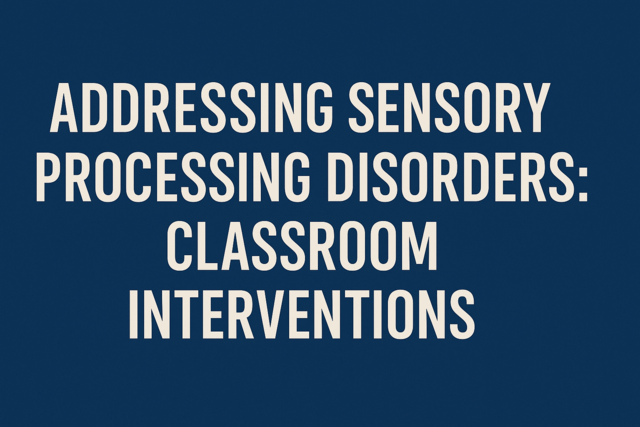Online Class: Negotiation and Persuasion in Business

-
15Lessons
-
22Exams &
Assignments -
7Hours
average time -
0.7CEUs
Course Description
Imagine a world where words are your most powerful tools, where your ability to read the room, understand unspoken cues, and craft compelling narratives can transform your career and elevate your personal success. Welcome to "Negotiation and Persuasion in Business"—a course meticulously designed to unlock these abilities and propel you into a realm of exceptional opportunities and lasting influence.
In today's interconnected world, the art of negotiation and persuasion is not just a skill—it's an essential part of life. Whether you're pitching ideas, negotiating salaries, finalizing business deals, or simply navigating daily interactions, your ability to negotiate with finesse and persuade with logic is crucial. This course is crafted for visionaries and dreamers; those who dare to believe that through the power of negotiation, they can create meaningful change.
At the heart of this course is a transformative journey—a journey that begins by exploring the psyche of your counterparts. Every negotiation is a dialogue with multiple layers, and understanding these intricacies is crucial. We delve deep into emotional intelligence—a gateway to transforming negotiations from mere transactional exchanges to meaningful partnerships. Equipped with the tools to explore beneath the surface, you'll learn to identify hidden motivations and tailor your approach to achieve mutually beneficial outcomes.
Empathy and active listening lie at the core of successful negotiation. We're here to show you how these seemingly simple concepts can turn challenges into growth opportunities. By embracing these powerful tools, you will cultivate an environment where innovation flourishes and every interaction holds the potential for success. We teach you to move beyond conflict towards collaboration, enabling you to build bridges and forge relationships that stand the test of time.
But it doesn't stop there. In a dance of diplomacy, mastering negotiation means understanding the symphony of words and silence. Through the keen observation of non-verbal signals and micro-expressions, your communication will transform from mundane to magical. This skill allows you to perceive emotions that words alone cannot capture, granting you the upper hand in every interaction.
Our course places you at the forefront of intercultural negotiation strategies. You'll gain insight into how cultural nuances affect decision-making and power dynamics, ultimately shaping your approach to fit diverse global frameworks. This understanding enables you to transform theoretical knowledge into practical success in any cultural context.
We will guide you meticulously through the potential pitfalls of logical fallacies, equipping you with the persuasive power of ethos, pathos, and logos to construct irrefutable arguments. You'll be armed with the skill to transform a nihilistic ‘no' into a compelling ‘yes.'
In this digital era, where pace and perception matter like never before, we emphasize transparency as a strategic advantage. By highlighting the elements of honesty and trust within negotiations, you'll learn to build connections that are both enduring and deeply enriching. Here, vulnerability turns into strength, and transparency fosters environments where innovation thrives and reputations flourish.
By the end of this course, you will have unlocked the keys to negotiating with both heart and strategy, effortlessly turning challenges into opportunities and skeptics into staunch allies. You'll leave not just with knowledge, but with a new narrative—a story of empowerment, confidence, and an ability to transform visions into reality.
Join us in "Negotiation and Persuasion in Business" and start transforming every conversation into a strategic milestone for success. It's more than just a course; it's a movement towards a future where your voice impacts, influences, and inspires. Secure your place in this transformative journey and redefine what's possible, one negotiation at a time. Start today—because the world awaits the change only you can bring.
- Business
- Business Ethics Courses
- Harassment Prevention Courses
- Human Resources Certifications
- Management
- Aromatherapy Courses
- Caregiver Courses
- Career Development Courses
- Communications Courses
- Confidence and Self Esteem Courses
- Healing
- Human Anatomy Courses
- Medical Skills
- Health & Medicine
- Nutrition
- Marketing
- Microsoft Office Certification Courses
- Life Coaching Courses
- Self-Improvement
- Small Business Certifications
- Safety
- Writing Improvement
- Business Writing Courses
Course Lessons
Lesson 1. Beyond Dialogue: Exploring the Counterpart's Psyche
 Review Practice Worksheet: Lesson-1-Activity-17731.pdf
Review Practice Worksheet: Lesson-1-Activity-17731.pdf Lesson discussions: Reasons for Taking this Course
Lesson discussions: Reasons for Taking this Course Complete Assignment: Why this Course?
Complete Assignment: Why this Course? Assessment: Lesson 1 Review Exam
Assessment: Lesson 1 Review Exam
Lesson 2. Emotional Intelligence in Negotiation
 Review Practice Worksheet: Lesson-2-Activity-17733.pdf
Review Practice Worksheet: Lesson-2-Activity-17733.pdf Complete: Lesson 2 Activity
Complete: Lesson 2 Activity Assessment: Lesson 2 Review Exam
Assessment: Lesson 2 Review Exam
Lesson 3. Negotiation: The Dance of Empathy and Insight
 Review Practice Worksheet: Lesson-3-WordSearch-17735.pdf
Review Practice Worksheet: Lesson-3-WordSearch-17735.pdf Complete: Lesson 3 Activity
Complete: Lesson 3 Activity Assessment: Lesson 3 Review Exam
Assessment: Lesson 3 Review Exam
Lesson 4. Active Listening: A Key to Success
 Review Practice Worksheet: Lesson-4-WordSearch-17737.pdf
Review Practice Worksheet: Lesson-4-WordSearch-17737.pdf Complete: Lesson 4 Activity
Complete: Lesson 4 Activity Assessment: Lesson 4 Review Exam
Assessment: Lesson 4 Review Exam
Lesson 5. Mastering Negotiations through Emotional Insight
 Review Practice Worksheet: Lesson-5-Activity-17739.pdf
Review Practice Worksheet: Lesson-5-Activity-17739.pdf Assessment: Lesson 5 Review Exam
Assessment: Lesson 5 Review Exam
Lesson 6. The Art of Asking: How Strategic Questions Drive Innovation
 Review Practice Worksheet: Lesson-6-Downloadable-17741.pdf
Review Practice Worksheet: Lesson-6-Downloadable-17741.pdf Complete: Lesson 6 Activity
Complete: Lesson 6 Activity Assessment: Lesson 6 Review Exam
Assessment: Lesson 6 Review Exam
Lesson 7. Silent Signals: Mastering Non-Verbal Communication
 Review Practice Worksheet: Lesson-7-HomeWork-17743.pdf
Review Practice Worksheet: Lesson-7-HomeWork-17743.pdf Complete: Lesson 7 Activity
Complete: Lesson 7 Activity Assessment: Lesson 7 Review Exam
Assessment: Lesson 7 Review Exam
Lesson 8. Towards Mastery in Negotiation: Navigating Logical Pitfalls
 Review Practice Worksheet: Lesson-8-WorkSheet-17745.pdf
Review Practice Worksheet: Lesson-8-WorkSheet-17745.pdf Assessment: Lesson 8 Review Exam
Assessment: Lesson 8 Review Exam
Lesson 9. Cultural Nuances in Negotiation: Emotion vs. Rationality
 Review Practice Worksheet: Lesson-9-Activity-17746.pdf
Review Practice Worksheet: Lesson-9-Activity-17746.pdf Assessment: Lesson 9 Review Exam
Assessment: Lesson 9 Review Exam
Lesson 10. Breaking Barriers: The Transformative Power of Empathy in Negotiations
 Complete: Lesson 10 Activity
Complete: Lesson 10 Activity Assessment: Lesson 10 Review Exam
Assessment: Lesson 10 Review Exam
Lesson 11. Trust, Empathy, and Strategy in Negotiation
 Assessment: Lesson 11 Review Exam
Assessment: Lesson 11 Review Exam
Lesson 12. Harnessing Persuasion to Elevate Business Negotiations
 Assessment: Lesson 12 Review Exam
Assessment: Lesson 12 Review Exam
Lesson 13. Transparency as a Strategic Advantage in Business
 Assessment: Lesson 13 Review Exam
Assessment: Lesson 13 Review Exam
Lesson 14. Negotiating with Heart and Strategy
 Assessment: Lesson 14 Review Exam
Assessment: Lesson 14 Review Exam
Lesson 15. The Art of Negotiation: Transforming Challenges into Opportunities
 Lesson discussions: End of Course Poll; Course Comments
Lesson discussions: End of Course Poll; Course Comments Assessment: Lesson 15 Review Exam
Assessment: Lesson 15 Review Exam
Learning Outcomes
- Define multiple alternative strategies to strengthen negotiation positions, enabling pivoting between diverse prospects for improved business outcomes.
- Recognize and apply emotional intelligence techniques to balance logic and empathy during negotiations, enhancing communication and fostering mutually beneficial agreements.
- Demonstrate the ability to adapt negotiation strategies by using emotional intelligence to manage emotions and foster collaborative interactions.
- Recognize and describe the five integral components of emotional intelligence and their roles in enhancing negotiation outcomes.
- Apply active listening and empathy to uncover hidden interests, illustrating an understanding of how these skills foster trust and collaboration in negotiation scenarios.
- Recognize and differentiate between positions and interests in a negotiation, demonstrating the ability to identify underlying motivations driving explicit demands.
- Demonstrate the ability to utilize active listening techniques such as paraphrasing, asking open-ended questions, and maintaining eye contact during a negotiation scenario.
- Describe how active listening can build trust and enhance persuasive ability by identifying emotions and underlying motivations in a business negotiation context.
- Define emotional intelligence and identify its key components related to negotiation, such as self-awareness, empathy, and emotional regulation.
- Demonstrate the ability to apply emotional regulation techniques in high-pressure negotiation scenarios to maintain composure and achieve favorable outcomes.
- Define strategic questioning and demonstrate its role in fostering innovation and collaboration within a business setting
- Identify specific strategies for employing empathetic communication to effectively resolve conflicts and build inclusive environments in the workplace
- Recognize and interpret micro-expressions to uncover true emotions during interactions, enabling strategic adjustments and improved negotiation outcomes.
- Demonstrate mastery of lesson content at levels of 70% or higher.
Additional Course Information

- Document Your Lifelong Learning Achievements
- Earn an Official Certificate Documenting Course Hours and CEUs
- Verify Your Certificate with a Unique Serial Number Online
- View and Share Your Certificate Online or Download/Print as PDF
- Display Your Certificate on Your Resume and Promote Your Achievements Using Social Media

Related Courses
-
 4 hours
0.4 CEUs
Design Dynamics: The Rise of Contemporary Luxury Designers
+ More Info
4 hours
0.4 CEUs
Design Dynamics: The Rise of Contemporary Luxury Designers
+ More Info
-
 5 hours
0.5 CEUs
Developing a Growth Mindset
+ More Info
5 hours
0.5 CEUs
Developing a Growth Mindset
+ More Info
-
 7 hours
0.7 CEUs
The Capsule Wardrobe: Streamlining Luxury with Style
+ More Info
7 hours
0.7 CEUs
The Capsule Wardrobe: Streamlining Luxury with Style
+ More Info
-
 3 hours
0.3 CEUs
Career Resilience and Adaptability
+ More Info
3 hours
0.3 CEUs
Career Resilience and Adaptability
+ More Info
-
 7 hours
0.7 CEUs
Using Multi-Sensory Approaches in Special Education
+ More Info
7 hours
0.7 CEUs
Using Multi-Sensory Approaches in Special Education
+ More Info
-
 3 hours
0.3 CEUs
Bermuda Triangle Mysteries
+ More Info
3 hours
0.3 CEUs
Bermuda Triangle Mysteries
+ More Info
-
 7 hours
0.7 CEUs
Self-Care and Wellness Practices
+ More Info
7 hours
0.7 CEUs
Self-Care and Wellness Practices
+ More Info
-
 5 hours
0.5 CEUs
Mindful Mornings for Relationship Resilience
+ More Info
5 hours
0.5 CEUs
Mindful Mornings for Relationship Resilience
+ More Info
-
 6 hours
0.6 CEUs
Building an Effective Personal Brand
+ More Info
6 hours
0.6 CEUs
Building an Effective Personal Brand
+ More Info
-
 3 hours
0.3 CEUs
Supervisory Skills for New Managers
+ More Info
3 hours
0.3 CEUs
Supervisory Skills for New Managers
+ More Info
-
 3 hours
0.3 CEUs
Social Media Content Creation
+ More Info
3 hours
0.3 CEUs
Social Media Content Creation
+ More Info
-
 7 hours
0.7 CEUs
Style Sovereign: The Power of Personal Branding in Luxury Fashion
+ More Info
7 hours
0.7 CEUs
Style Sovereign: The Power of Personal Branding in Luxury Fashion
+ More Info
-
 4 hours
0.4 CEUs
Gamification in Education
+ More Info
4 hours
0.4 CEUs
Gamification in Education
+ More Info
-
 3 hours
0.3 CEUs
Mindfulness and Well-Being at Work
+ More Info
3 hours
0.3 CEUs
Mindfulness and Well-Being at Work
+ More Info
-
 6 hours
0.6 CEUs
Sibling Rivalry and Narcissism: Struggles in Dysfunctional Families
+ More Info
6 hours
0.6 CEUs
Sibling Rivalry and Narcissism: Struggles in Dysfunctional Families
+ More Info
-
 7 hours
0.7 CEUs
Global Glam: International Perspectives on Modern Fashion
+ More Info
7 hours
0.7 CEUs
Global Glam: International Perspectives on Modern Fashion
+ More Info
-
 5 hours
0.5 CEUs
Understanding and Reducing Bias
+ More Info
5 hours
0.5 CEUs
Understanding and Reducing Bias
+ More Info
-
 3 hours
0.3 CEUs
Self-Regulation Strategies for Students with Disabilities
+ More Info
3 hours
0.3 CEUs
Self-Regulation Strategies for Students with Disabilities
+ More Info
-
 5 hours
0.5 CEUs
Bridging Generational Gaps: Understanding Family Dynamics
+ More Info
5 hours
0.5 CEUs
Bridging Generational Gaps: Understanding Family Dynamics
+ More Info
-
 5 hours
0.5 CEUs
Data Visualization Techniques
+ More Info
5 hours
0.5 CEUs
Data Visualization Techniques
+ More Info
-
 6 hours
0.6 CEUs
The New Chic: Redefining Urban Elegance
+ More Info
6 hours
0.6 CEUs
The New Chic: Redefining Urban Elegance
+ More Info
-
 5 hours
0.5 CEUs
Dress Like a Mogul: Navigating High-End Fashion for Men
+ More Info
5 hours
0.5 CEUs
Dress Like a Mogul: Navigating High-End Fashion for Men
+ More Info
-
 3 hours
0.3 CEUs
Creative Arts Therapies in Special Education
+ More Info
3 hours
0.3 CEUs
Creative Arts Therapies in Special Education
+ More Info
-
 3 hours
0.3 CEUs
Unpacking Attachment Styles: Keys to Healthier Relationships
+ More Info
3 hours
0.3 CEUs
Unpacking Attachment Styles: Keys to Healthier Relationships
+ More Info
-
 7 hours
0.7 CEUs
Developing Academic Language Skills
+ More Info
7 hours
0.7 CEUs
Developing Academic Language Skills
+ More Info
-
 3 hours
0.3 CEUs
Holistic Approaches to Education
+ More Info
3 hours
0.3 CEUs
Holistic Approaches to Education
+ More Info
-
 5 hours
0.5 CEUs
Mindfulness Techniques for Educators
+ More Info
5 hours
0.5 CEUs
Mindfulness Techniques for Educators
+ More Info
-
 6 hours
0.6 CEUs
Assessment and Evaluation in Education
+ More Info
6 hours
0.6 CEUs
Assessment and Evaluation in Education
+ More Info
-
 5 hours
0.5 CEUs
Setting and Maintaining Personal Priorities
+ More Info
5 hours
0.5 CEUs
Setting and Maintaining Personal Priorities
+ More Info
-
 7 hours
0.7 CEUs
Trauma Typologies: Exploring Varieties of Psychological Wounds
+ More Info
7 hours
0.7 CEUs
Trauma Typologies: Exploring Varieties of Psychological Wounds
+ More Info
-
 6 hours
0.6 CEUs
Fashion Forward: Trendsetting in the Modern Era
+ More Info
6 hours
0.6 CEUs
Fashion Forward: Trendsetting in the Modern Era
+ More Info
-
 7 hours
0.7 CEUs
Emotional and Behavioral Disorders: Identification and Support
+ More Info
7 hours
0.7 CEUs
Emotional and Behavioral Disorders: Identification and Support
+ More Info
-
 5 hours
0.5 CEUs
Childhood Trauma: Long-term Effects and Interventions
+ More Info
5 hours
0.5 CEUs
Childhood Trauma: Long-term Effects and Interventions
+ More Info
-
 4 hours
0.4 CEUs
The Role of Feedback in Student Learning
+ More Info
4 hours
0.4 CEUs
The Role of Feedback in Student Learning
+ More Info
-
 4 hours
0.4 CEUs
Addressing Sensory Processing Disorders: Classroom Interventions
+ More Info
4 hours
0.4 CEUs
Addressing Sensory Processing Disorders: Classroom Interventions
+ More Info
-
 5 hours
0.5 CEUs
Fostering a Positive Attitude
+ More Info
5 hours
0.5 CEUs
Fostering a Positive Attitude
+ More Info
-
 3 hours
0.3 CEUs
Effective Assessment Practices in Special Education
+ More Info
3 hours
0.3 CEUs
Effective Assessment Practices in Special Education
+ More Info
-
 4 hours
0.4 CEUs
Unlocking Resilience: Techniques for Tough Times
+ More Info
4 hours
0.4 CEUs
Unlocking Resilience: Techniques for Tough Times
+ More Info
-
 4 hours
0.4 CEUs
Facilitating Online and Hybrid Learning
+ More Info
4 hours
0.4 CEUs
Facilitating Online and Hybrid Learning
+ More Info
-
 3 hours
0.3 CEUs
Luxury Layering: The Art of Dressing with Opulence
+ More Info
3 hours
0.3 CEUs
Luxury Layering: The Art of Dressing with Opulence
+ More Info




